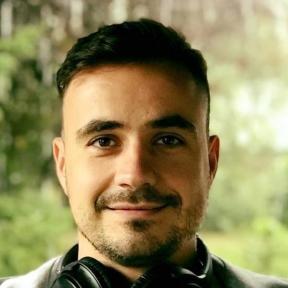History of Russia in the 20th century: the era of extremes - course 5925 rubles. from Level One, training 10 lectures for 2 hours, Date: November 29, 2023.
Miscellaneous / / December 02, 2023
A course about how our country has changed over the past 100 years. Let's fill the names and dates familiar from school with meaning, and learn more about ourselves and our ancestors. Let's take an unbiased look into the past and try to form our own opinion - historical documents and photos will help us with this.
Historian-archivist, chief specialist of the Russian State Archive of Socio-Political History. Leading researcher at the Faculty of Political Science of Moscow State University, Candidate of Philosophical Sciences.
Russia at the beginning of the 20th century: between revolutions and wars
During the lecture we will discuss:
- what the Russian Empire was like at the beginning of the 20th century;
- can we call it a “colossus with feet of clay”;
- what was Russia’s place in the world, who were its allies and competitors;
- how peasants and workers, merchants and nobles lived and why revolutionary sentiments grew in society;
- how the economy of the empire developed, and why the reforms of Witte and Stolypin did not save the country from revolutions.
Russia in World War I
During the lecture we will discuss:
- why the First World War is often called the “forgotten” or “unknown” war;
- what led to the fighting and how this war differed from previous ones;
- how states were forced to regulate the country's economy;
- why many soldiers died in the trenches without ever seeing the enemy in person;
- what role did Russia play in this war;
- why the events of the Civil and Great Patriotic War overshadowed the war in the mass consciousness and in the eyes of historians.
Revolutions and Civil War
During the lecture we will discuss:
- how the most conservative European monarchy became the freest country in the world and why we then slipped into a Civil War;
- how to understand the intricacies of political parties and ideological disputes;
- why the February and October revolutions happened;
- how do the concepts of “coup” and “revolution” relate to each other?
- why democracy with the Constituent Assembly did not work out in Russia;
- how to arrange the turbulent events of the Civil War into a logical sequence;
- why it was the Reds who won the war.
The Roaring Twenties: How the USSR was Built
During the lecture we will discuss:
- what the new country looked like after the Civil War;
- how the Soviet Union became one of the fastest growing countries in Europe, and then in the world;
- why the White emigrants reconciled themselves with the power of the “commissars”, and Western politicians established relations with the revolutionary authorities;
- how the Bolsheviks looked at national politics, state building, and governance of the country;
- what role did Lenin, Stalin, Trotsky play in the formation of the Soviet Union, and why there were such heated debates between them;
- why Stalin won the political struggle in the Bolshevik party by the end of the 20s;
- why did they cancel the seemingly successful “new economic policy” at the same time?
Stalin's USSR: mobilization and repression
During the lecture we will discuss:
- how industrialization, the giant leap of the first five-year plans, the construction of new cities, the elimination of illiteracy were combined with forced collectivization, mass repressions and the Gulag;
- how the economy of the USSR developed during this period and how the country’s political system worked;
- what we now know about the repressions, and what is still classified and why;
- how Soviet people lived before World War II.
Why it was not possible to prevent World War II
During the lecture we will discuss:
- how the world was sliding towards a new war;
- how Germany, Italy, Japan built and implemented their aggressive plans;
- why Great Britain, France and the USA did not interfere with these plans;
- why the USSR first fiercely opposed fascism, and then entered into an agreement with Germany;
- what documents on this topic have been declassified recently.
USSR and World War II
During the lecture we will discuss:
- Soviet-German relations in 1939-1941;
- a catastrophic start to the war for the USSR,
- the role of the allies of the USSR in general and Lend-Lease in particular;
- the tragedy of occupation and the problem of cooperation with the enemy;
- due to which the USSR won the war against such a strong enemy;
- what role the war played in the subsequent history of the country.
Paradoxes of “thaw” and “stagnation”
During the lecture we will discuss:
- why reforms were necessary after Stalin’s death;
- how the “Khrushchev Thaw” developed;
- why Khrushchev was removed from power, and the reforms were soon curtailed;
- how the unprecedented successes of the USSR gave way to stagnation;
- what exactly was the “stagnation” and how they tried to get out of it.
The Cold War: A Brief History of a Bipolar World
During the lecture we will discuss:
- why the allies in the anti-Hitler coalition separated;
- why the history of the second half of the twentieth century was determined by the competition of superpowers;
- what were the causes of the Cold War;
- what “hot” conflicts happened during this period: the war in Korea, Vietnam, Afghanistan, the Arab-Israeli wars;
- what role did the Cold War play in the collapse of colonial empires;
- how the arms race took place and why the USSR was defeated in this conflict;
- why some elements of the Cold War have revived in the modern world.
The collapse of the USSR: was it inevitable?
During the lecture we will discuss:
- when was the “point of no return” in Soviet history;
- why “perestroika” began and how the reforms developed, and what economic problems gave rise to them;
- what role did the Chernobyl disaster play in the collapse of the USSR;
- what were the reasons for the sharp growth of nationalism in the USSR in the second half of the 80s;
- why the State Emergency Committee arose and then lost;
- was it possible to save the USSR;
- what role did the Soviet period play in the history of our country and the world as a whole.



